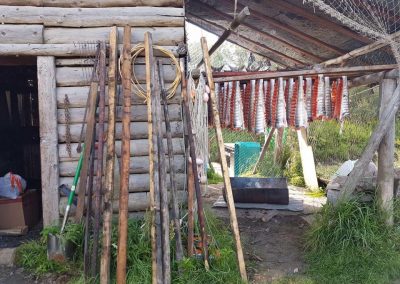Our Mission
TIDR is a multidisciplinary, multi-institutional team of faculty members, post-doctoral fellows, graduate students, and community partners focused on improving psychosocial treatment for mental disorders and increasing access to evidence-based treatments for these conditions among traditionally underserved populations. TIDR focuses on community-based participatory methods and the use of technology to achieve these aims.
Read More About TIDR
TIDR News
TIDR Faculty Dr. Bornheimer, Dr. Ellis, and Dr. Quinn Named Co-Chairs for Society for Social Work and Research Conference
TIDR Faculty Members Dr. Lindsay Bornheimer, Dr. James Ellis, and Dr. Camille Quinn have been selected to serve a 3-year term as cluster co-chairs for the Society for Social Work and Research (SSWR) Annual Conference! Cluster chairs are pivotal in the abstract review...
Congratulations to Dan Fischer on Retirement!
Assistant Dean and Director of Field Education, Associate Clinical Professor, and TIDR member Daniel J. Fisher will be retiring from his position at the UM School of Social Work at the end of December. Assistant Dean Fischer led the Office of Field Education through...
TIDR Faculty Dr. Anao Zhang Selected as a New Primary Investigator for the Research Incubator Program through the Eisenberg Family Depression Center
Congratulations to TIDR Faculty Member Dr. Anao Zhang! Dr. Zhang has been selected as a Primary Investigator for the Eisenberg Family Depression Center’s Research Incubator Program. Dr. Anao Zhang will be leading a project examining the mental health trajectories of...
Current Projects
years from onset of mental disorder to contacting any treatment provider. (Wang et al., 2004)
%
of individuals with diagnosed mental health disorder visit a mental health specialist in their lifetime
Americans live in Mental Health Professional Shortage Areas
Ailsa’s Story
“They [RISE counselors] opened up a crazy opportunity for me, one that I thought I’d never be able to pursue. When they found out that I loved to cook and wanted to open my own restaurant someday, they put me in a cooking internship at Detroit Rescue Mission. Now I work there as a chef at the Men’s Shelter. It’s hard to be a female chef, first, and then to be one without training is even harder. But my counselors were like, ‘You got this!'” Read More




